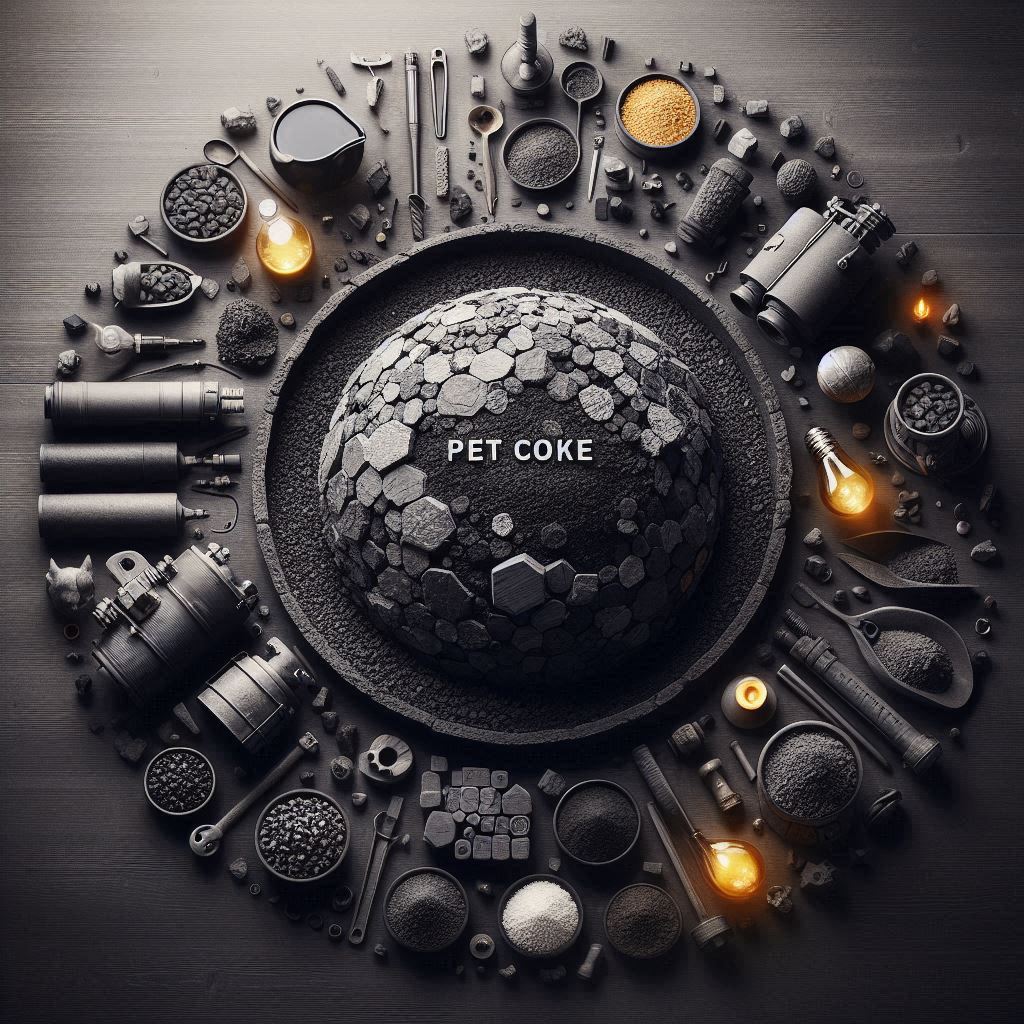
Pet Coke Uses, Specifications & Environmental Impact Guide
Short Intro:
Pet Coke is a versatile carbon-rich byproduct of oil refining used across multiple industries. This guide explores its applications, quality parameters, and environmental impact.
1) Introduction
Petroleum coke, commonly called Pet Coke, is a carbon-dense solid derived from refined crude oil. As a byproduct of the oil refining process, it serves as an essential resource in energy production, cement manufacturing, metallurgy, and chemical industries. Its high carbon content and adaptability have made it indispensable across sectors. However, its combustion raises environmental concerns, prompting regulatory oversight and innovation toward cleaner alternatives.
Technological advancements and sustainable practices are increasingly shaping the pet coke industry. Businesses, regulators, and environmental advocates must collaborate to balance economic benefits with environmental responsibility. Understanding the uses, specifications, and potential risks of pet coke is crucial for industries and decision-makers aiming to leverage this resource efficiently while mitigating environmental impact.
2) SEO Snippet
Pet Coke Overview: Petroleum coke (Pet Coke) is used in power generation, cement production, and metallurgy. Its high carbon content makes it an effective fuel and raw material, but environmental regulations are shaping its use. Learn more about applications, specifications, and sustainable alternatives.
3) LSI Keywords
- Petroleum coke uses
- Pet coke specifications
- Calcined pet coke applications
- Pet coke environmental impact
- Industrial fuel alternatives
- High carbon byproducts
- Cement and metallurgy fuel
- Carbon source in chemical manufacturing
4) 1) Pet Coke Uses
Fuel for Energy Production
Pet coke is widely used as a fuel in power plants, cement kilns, and industrial facilities due to its high calorific value. Its combustion releases significant thermal energy, making energy production efficient and cost-effective. However, sulfur dioxide emissions and particulate matter have prompted stricter environmental regulations, pushing industries to explore cleaner energy solutions.
Industrial Processes – Cement Production
In cement manufacturing, pet coke serves as a key fuel, reducing dependency on traditional fossil fuels like coal. Its low ash content and high carbon concentration improve energy efficiency and reduce production costs. The cement industry is increasingly adopting greener technologies to comply with environmental regulations.
Smelting and Metal Production
Pet coke is crucial in metallurgical processes, particularly aluminum production. Acting as a reducing agent, it helps extract metals from ores, enhancing operational efficiency. Its high carbon content and low ash composition make it ideal for the aluminum industry.
Chemical Manufacturing
Many chemical and manufacturing industries utilize pet coke as a carbon source. It is instrumental in producing carbon black, graphite, and various chemical compounds. Companies are increasingly adopting environmentally conscious methods due to the negative impacts of pet coke combustion.
5) 2) Specifications and Quality Parameters
Sulfur Content
Sulfur levels significantly impact combustion properties and environmental effects. Low-sulfur pet coke is preferred to minimize sulfur dioxide emissions, which contribute to air pollution and acid rain.
Calorific Value
The energy content of pet coke determines its efficiency as a fuel. Higher calorific value indicates better energy output, making it a cost-effective option for industrial use.
Particle Size and Uniformity
Uniform particle size ensures optimal combustion in power plants and industrial kilns, improving efficiency and reducing waste.
Ash Content
Lower ash content is desirable to minimize environmental impact and operational challenges. High ash concentrations can increase pollution and affect equipment performance.
6) 3) Applications of Pet Coke
Fuel Source
Pet coke serves as a primary and supplementary fuel for power generation and cement production. Its high energy density reduces reliance on conventional fossil fuels, lowering operational costs.
Metallurgical Applications
In aluminum production and other metal industries, pet coke acts as a carbon source to extract metals from ores. Its low ash content and high carbon efficiency make it valuable for smelting processes.
Calcined Pet Coke
Calcined pet coke undergoes high-temperature processing to remove volatile materials, producing a pure carbon source suitable for graphite electrodes and other industrial applications.
Fuel for Power Stations
Power stations use pet coke as a low-cost alternative to coal. Its high calorific value and lower sulfur content make it an effective fuel while diversifying energy sources.
7) 4) Environmental Concerns and Regulations
Despite its industrial utility, pet coke poses environmental challenges. Its combustion releases greenhouse gases, sulfur dioxide, and particulate matter, contributing to climate change and air quality issues. Regulatory agencies have imposed stricter controls, encouraging industries to adopt greener technologies and explore alternative carbon sources.
Sustainable practices, including cleaner combustion technology and research into eco-friendly carbon alternatives, are essential for reducing environmental impact. Companies adopting responsible practices can maintain operational efficiency while complying with environmental standards.
8) 5) External Links and Resources
- International Energy Agency – Pet Coke Use
- World Cement Association – Alternative Fuels
- Environmental Protection Agency – Air Quality Standards
9) 6) Conclusion
Pet coke remains a versatile and economically valuable byproduct of oil refining. Its applications span energy production, cement manufacturing, metallurgy, and chemical industries. However, the environmental impact of its combustion has prompted tighter regulations and innovation toward sustainable practices. Understanding its specifications, applications, and ecological footprint enables businesses to optimize usage while mitigating environmental risks.
Industries embracing cleaner technologies and exploring alternative fuels can balance operational efficiency with ecological responsibility. Pet coke's future will likely hinge on sustainability, regulatory compliance, and continued technological advancement.
10) About NovinTrades
As part of its commitment to industry knowledge and business development, NovinTrades provides a dedicated Reportage Section, where businesses, brands, and industry professionals can publish in-depth articles, analyses, and thought leadership pieces. This platform enhances online visibility, strengthens brand authority, and drives engagement with key decision-makers.
Explore our reportages here: NovinTrades Reportages
Join our community on Telegram for updates and insights: https://t.me/novintrades

